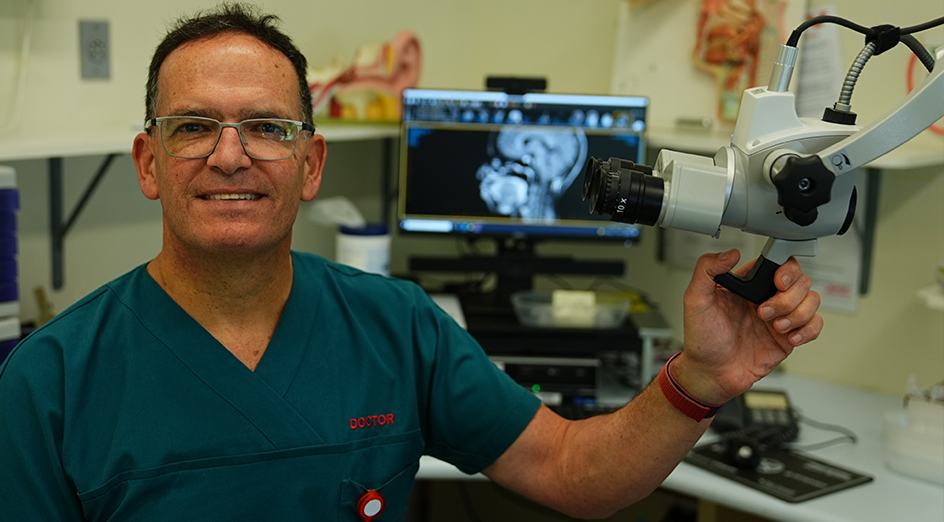A study led by an expert from The University of Western Australia has found a virus-killing nasal spray could be effective in reducing the spread of COVID-19.
Associate Professor Peter Friedland, from UWA’s Medical School, was lead author of the study published in the Australian Journal of Otolaryngology.
“Global management of the COVID-19 pandemic relies on effective community vaccination and preventive strategies to reduce airborne spread of the virus,” Associate Professor Friedland said.
Nasodine Nasal Spray is based on povidone-iodine, the same active ingredient found in Betadine throat gargle, and has been in development for almost a decade as a treatment for the common cold.
 Image: Associate Professor Peter Friedland, from UWA’s Medical School, was lead author of the study.
Image: Associate Professor Peter Friedland, from UWA’s Medical School, was lead author of the study.
Laboratory experiments showed a 15-second exposure to the nasal spray reduced infectivity of SARS-CoV-2 by 99.97 per cent, while a 60-second exposure completely eliminated viral infectivity.
A subsequent pilot study of six COVID-19 patients, who were shedding the virus from the nose, looked at whether the laboratory results translated to people.
The trial showed that a single Nasodine dose (four sprays per nostril) reduced viral shedding in five of the six subjects (83 per cent) at five minutes after the dose, with an overall 79 per cent reduction in viral shedding at one hour after the dose.
Associate Professor Friedland said we had adapted to wearing masks and social distancing in the past few years and this finding could also change our behaviour.
“Just as we currently are used to regularly disinfecting our hands, in the future we may also make a habit of disinfecting our noses,” he said.
“The lab and pilot study results are encouraging and in 2022 we expect to conduct a double-blinded, randomised, Phase 2 trial to assess if repeated doses of Nasodine over several days can suppress or eliminate viral shedding from COVID patients.”
Nasodine Nasal Spray, initially developed by Firebrick Pharma, is not yet approved for sale and there is currently no published evidence that it could be effective in the real world against COVID.








